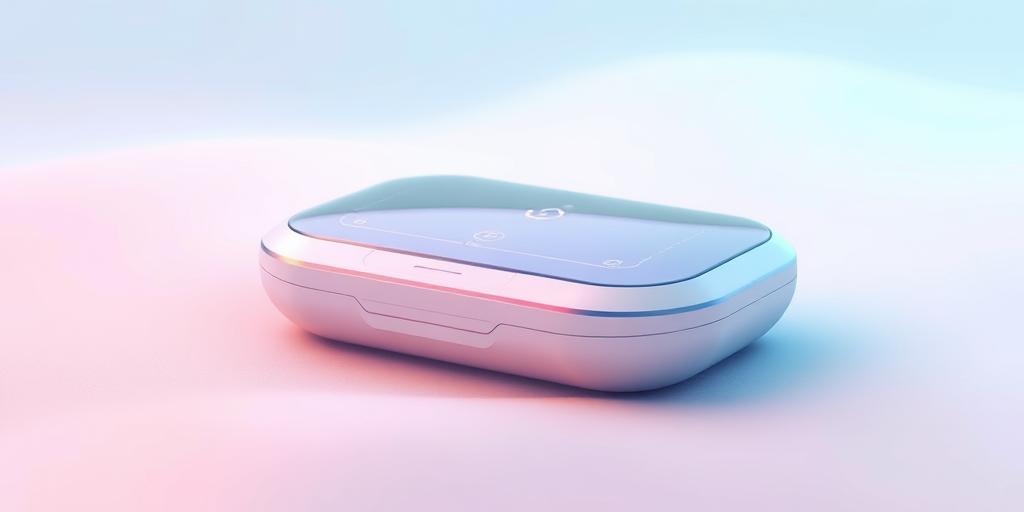Is technology the key to unlocking better mental health support? The answer might surprise you! We’re seeing a surge in innovative devices designed to improve mental well-being, offering accessible and discreet support for everyone from busy professionals to those managing serious conditions. Let’s explore this fascinating world where technology and mental health collide, uncovering the groundbreaking devices that are changing lives.
Wearable Tech: Your Silent Mental Health Guardian
Imagine a device that subtly monitors your stress levels, sleep patterns, and even heart rate variability, providing insights into your mental state without requiring constant effort. That’s the power of wearable technology in mental health. These aren’t just fitness trackers; they’re sophisticated tools that use biometrics to detect subtle changes that can indicate an escalation of symptoms. Some even offer guided meditation and mindfulness exercises, delivered directly to your wrist. Smartwatches and fitness bands now incorporate features designed to promote mental wellness, reminding users to take breaks, stay hydrated, and engage in calming activities. The potential for personalized mental health monitoring using wearables is immense, offering early warning systems for potential mental health crises and facilitating proactive intervention.
Key features of wearable mental health devices:
- Real-time biofeedback: Track stress levels, heart rate variability, and sleep quality for early warning signs of distress.
- Personalized insights: Receive tailored recommendations based on your unique data and patterns.
- Mindfulness and relaxation exercises: Access guided meditation and breathing exercises directly through the device.
- Integration with mental health apps: Seamlessly connect your device to apps for tracking progress, journaling, and accessing professional support.
Mobile Apps: Mental Health in Your Pocket
The ubiquitous smartphone has become a surprisingly powerful tool for mental health management. Countless apps are available, offering a range of functionalities, from meditation and CBT techniques to journaling and connection with support networks. These apps offer convenient and accessible mental health support, breaking down geographical barriers and reducing the stigma often associated with seeking professional help. Many apps employ evidence-based techniques developed by mental health professionals, ensuring a scientific basis for the interventions they offer. Some apps even offer features that integrate with wearable devices, allowing for a holistic approach to mental wellness.
Types of mental health apps:
- Meditation and mindfulness apps: Guide users through meditation exercises to reduce stress and improve focus.
- CBT (cognitive behavioral therapy) apps: Teach users techniques to identify and challenge negative thoughts and behaviors.
- Journaling apps: Provide a safe space to record thoughts, feelings, and experiences.
- Social support apps: Connect users with others facing similar challenges, fostering a sense of community.
Neurofeedback Systems: Training Your Brain for Better Health
While not as widely accessible as wearables or mobile apps, neurofeedback systems are emerging as a powerful tool in treating various mental health conditions. These systems use sensors to monitor brainwave activity, providing real-time feedback to help users learn to regulate their brainwaves and improve their mental state. It involves self-regulation techniques to enhance mental performance and is often used alongside traditional therapies to yield optimal results. It is a non-invasive way of monitoring brain patterns.
Benefits of neurofeedback:
- Improved focus and attention: Neurofeedback training can help enhance concentration and reduce distractibility.
- Reduced anxiety and stress: By regulating brainwave patterns, neurofeedback can help manage anxiety and stress.
- Improved sleep: Neurofeedback can promote more restful and restorative sleep.
- Treatment of ADHD and other conditions: Neurofeedback is increasingly used as a complementary treatment for conditions such as ADHD and depression.
The Future of Mental Health Technology
The field of mental health technology is rapidly evolving, with new innovations constantly emerging. We can expect to see even more sophisticated wearable devices, more personalized mental health apps, and more accessible neurofeedback systems. The integration of artificial intelligence (AI) will also likely play a significant role in the future of mental health technology, allowing for more precise diagnosis, more targeted treatment, and a more proactive approach to mental well-being. Early intervention is crucial, and these technologies show incredible promise in providing individuals with the tools they need to navigate mental health challenges and improve their overall quality of life. This technology allows for a more holistic approach to mental wellness.
Embrace the future of mental health care, and explore the technology that is available. Many of these innovations are already helping people live their best lives. Take the first step toward a more peaceful and balanced existence; learn more about the technology available to support your mental well-being today!




